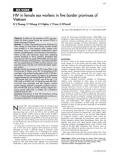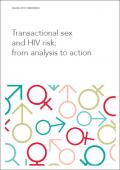Publications on Female Sex Workers (FSW)
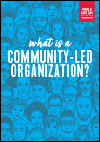
Community-led organizations are led by the people who they serve and are primarily accountable to them. In the AIDS response, this includes organizations by and for people living with HIV or tuberculosis and organizations by and for people affected by HIV, including gay men and other men who have sex with men, people who use drugs, prisoners, sex workers, transgender people, women and young people.
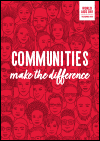
Communities make an invaluable contribution to the AIDS response. Communities of people living with HIV, of key populations—gay men and other men who have sex with men, people who use drugs, sex workers, prisoners, transgender people and prisoners—and of women and young people lead and support the delivery of HIV services, defend human rights, support their peers. Communities are the lifeblood of an effective AIDS response and an important pillar of support.
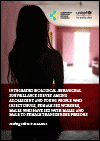
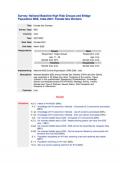
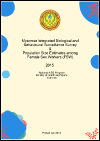
The objectives of the survey were to collect data which can be used to track the HIV epidemic among FSW and guide the response in terms of providing prevention, care and treatment services for this population. Key measures of the survey included HIV seroprevalence, key risk behavior data, service utilization, experience with stigma and discrimination, and estimates of population size. The eligibility criteria for the survey were women aged 15-49 years old, currently living or working in the survey city, and who sold sex for cash or kind in the last 12 months.
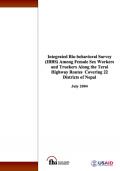
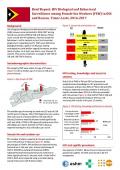
HIV Integrated Biological and Behavioural Surveillance (IBBS) surveys were conducted in 2016-2017 among female sex workers (FSW) in Dili and Baucau, Timor-Leste to track the HIV epidemic, monitor sexual risk behaviours, and to measure access to intervention programs in responding to HIV. FSW were defined as biological females, aged 17 to 49 years, having exchanged sex (anal and/or vaginal) for money or other items of value, to at least two clients, over the past 12 months. This survey resulted in a sample of 202 FSW in Dili and 110 FSW in Baucau.







